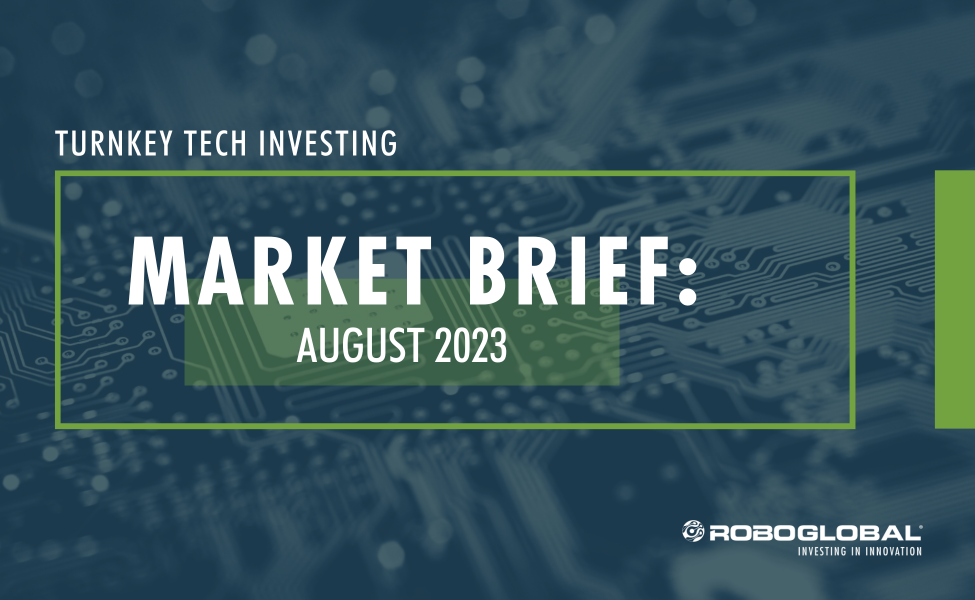We conducted an in-depth analysis of our Healthcare Technology & Innovation Index (HTEC) to estimate the impact of the COVID-19 pandemic on HTEC’s portfolio companies. Our analysis indicates that although most companies will see a negative impact in the near term, 70% of the index should see a more rapid recovery. More importantly, in the long term we expect a net positive fundamental impact on HTEC, as 21% of the index operates in areas that could see incremental demand post-pandemic. In particular, we expect healthcare stakeholders to increase investment in areas such as telehealth, data analytics, genomics, and precision medicine to better leverage new technology and to better prepare for future outbreaks.
Majority of the HTEC companies will have at least some impact from COVID-19
It is difficult to determine exactly when normal healthcare operations will resume and for how long they’ll remain “normal”. For simplification, our analysis assumes the near-term time horizon within the next 12 months, or whenever the COVID-19 case curve flattens, and we assume the long term as more than 12 months out. We classified the impact of COVID-19 on revenues for the ~85 members of the index in terms of negative, neutral, or incremental.
Similar to most global organizations, we expect most of the HTEC Index to have a near-term negative impact, largely due to the healthcare industry’s focus toward COVID-19 cases and away from other medical needs. However, we expect 5% of the index to have a relatively neutral impact because their dominant sources of revenue should remain in high utilization through the crisis. For example, Baxter and Penumbra generate most of their revenue on equipment used for critical or urgent care needs, which should see stable demand throughout the pandemic. Another 5% of the index is seeing a near-term surge in utilization, as people rely more heavily on virtual care companies like Teladoc and Ping An for remote doctor visits and Livongo for monitoring people with chronic illnesses.
Most of HTEC’s delayed revenue should recover fairly quickly
In terms of the near term impact, we expect 70% of the index to have a more rapid recovery, with the curve appearing more V-shaped than U-shaped. These companies typically provide treatment and procedures which can’t be delayed for extended periods. Examples include Edwards Lifesciences, which makes devices used in procedures for patients with severe aortic stenosis, or Varian, which produces instruments used for radiation therapy with cancer patients. These life-saving procedures can be delayed, but only temporarily, and therefore we expect these companies to more quickly recover delayed revenue associated with COVID-19. In general, procedures and treatments related to areas like cardiology and oncology largely fall into this bucket of short deferability.
We expect 20% of the index to have greater deferability; i.e. these companies serve needs that can be pushed further into the future. For example, medical instrument procedures in the orthopedic, ophthalmic, and spine categories are more elective in nature. Stryker and Conmed, for example, have more exposure in these areas. We expect most of these delayed elective procedures to take place eventually, but the sense of urgency may be lower than some of the less deferrable procedures mentioned above. We also note that overall volume may decline in the near term due to the reduction of accident-driven procedures from events that aren’t currently taking place (e.g., sport- or leisure-related). Economic pressures may also drive cancellation of elective procedures. Beyond medical devices, we also expect a slower recovery among companies whose products are more weighted in capital-intensive sales or which require large-scale implementations. Vocera, Omnicell, or Intuitive Surgical fit in this category, and we expect their recovery curves to be more U-shaped. That said, we remain highly confident these companies will eventually return to pre-pandemic growth levels.
Long-term, unmet healthcare needs will continue; COVID-19 may accelerate innovation
In the long term, we expect most of the companies in the HTEC Index to resume their pre-pandemic growth levels. For 21% of the index, we believe demand will actually accelerate, stemming from the global shift in mindset that this pandemic will inevitably cause. When healthcare providers and policymakers reflect on their learnings from COVID-19, we expect to see increased investment in areas that will help manage health care more efficiently and mitigate future crisis situations. We believe an increase in post-pandemic investments would have a direct impact across several areas included in the HTEC Index, particularly in telehealth, data analytics, genomics, and precision medicine.
In the telehealth world, we’ve noted several benefits delivered through telemedicine providers like Teladoc and Ping An, notably as enablers for remote patient visits. Moving forward, not only would we expect increased demand for remote visits, but the broader virtual and remote care environment. Several companies in HTEC address patient needs. Livongo helps patients monitor diabetes, hypertension, and mental health. iRhythm and BioTelemetry remotely monitor cardiac events.
Tabula Rasa is also well positioned to meet the needs of a post-pandemic environment, as it has two mechanisms that keep elderly patients well and out of higher-cost environments. First, the company offers a full suite of solutions to help the growing market of PACE centers, which are essentially nursing homes that allow patients to live in their own homes. Second, its sophisticated software platform helps manage medication among the elderly and lowers their risk of hospitalization caused by medication errors.
In recent commentary, we noted how several HTEC members are rapidly innovating to address diagnostic and therapeutic needs for COVID-19. In our view, innovation doesn’t stop there. We also believe the world will increasingly seek breakthrough technology from diagnostic, genomics, and precision medicine companies. While numerous HTEC companies provide exposure to these themes, we believe COVID-19-related R&D will accelerate future innovation for companies like Regeneron and Moderna.
About the ROBO Global Healthcare Technology and Innovation Index (HTEC)
The ROBO Global Healthcare Technology & Innovation Index (ticker: HTEC) provides investors with unique, global exposure to best-in-class companies leading the healthcare technology revolution. In contrast to other healthcare indexes, HTEC’s portfolio companies are more heavily weighted across a diverse range of the most innovative subsectors of healthcare, including diagnostics, robotics, genomics, precision and regenerative medicine, process automation, instruments, data analytics, and telehealth.





